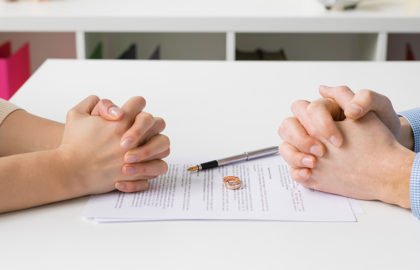A breakup raises emotional issues. But there are legal issues as well. If there are children involved, who will they live with? How does the divorce process work? What about support payments? These are just a few of the questions you might have. This series of articles explains your rights and responsibilities during a separation or divorce.
Important!
These articles only apply to married couples. Different rules apply to unmarried couples, often called “common-law” couples. To learn more, see our Editor’s Picks file about common-law couples.
Mediation
Did you know that there is a way to settle issues arising from a breakup without going to court? You can use a process called mediation.

The Mediation Process

Information Session on Parenting and Family Mediation

When Mediation Is Free for Couples
Separation and Divorce

Living Apart: Different From Legal Separation

The Three Legal Reasons for Divorce
Our printable guides
Financial Support for an Ex-Spouse

Financial Support for an Ex-Spouse

Changing or Cancelling Spousal Support
Children
Parenting is a lifetime responsibility! Even after a breakup, parents must continue to provide for their children. How? Through child support payments. What about living arrangements for children? Children might want to have a say about this. These articles explain the responsibilities of parents and rights of children.
Child Custody and Visiting Rights

Child Custody and Visiting Rights During a Breakup

Child Custody Decisions: Criteria Used and Types of Custody

A Child's Preference About Custody

Preventing or Limiting Contact Between a Parent and a Child
Financial Support for Children

Federal Child Support Rules

The End of Child Support Payments
Division of Property
A breakup also involves dividing up property. The rules that apply depend on your particular situation and the type of property in issue.

Dividing Property







